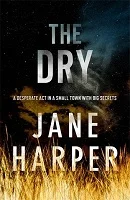3 stars. I have mixed feelings about this book. There’s so much Shakespeare, which I absolutely loved. It compares quite adequately to The Secret History and its other lookalikes, which I also loved. It’s fast-paced, well-rounded and well-written. But it isn’t perfect and, I’m sorry to say, I was left unsatisfied.
First issue - can anyone explain Richard’s escalating behavior in Act I? In my experience, people don’t change quite that dramatically without some sort of catalyst - drug abuse, adult onset bipolar disorder, SOMETHING. From the beginning, Richard felt like a plot device, his tantrums ultimately unexplained. It just didn’t feel natural, to me.
Second issue - one of the fantastic elements of The Secret History is its believability. Donna Tartt took pages and pages and pages to build a sturdy foundation so by the time we get to the murder, it feels like an act within the realm of what we’d expect from our characters. And listen, I’m happy to suspend realism for the sake of a good story. But the fact that six people completely readjusted their moral compasses on exactly the same night after a man demonstrated mentally ill - antagonistic, aggressive, scary, but mentally ill nonetheless - behavior for, what, several weeks? After years of friendship? Does not compute. For me, at least.
Third issue - about ¾ of the way through the book I shut it and whispered “first world problems.” This has been noted in other reviews, but these characters are privileged, ignorant and exhibit totally skewed perspectives. This may be explained by the whole “blame everything on Shakespeare” theme, and I actually buy that, in away. I’m certain that the school formed a bubble in which these people lived and perceived things and made decisions. But it really did seem … beyond dramatic. Melodramatic.
Fourth issue - all of this could’ve been solved had people just slept with whom they were attracted. Yeah, this is all basically just a giant case of romantic self-sabotage. Everybody’s cockblocking each other and using each other for sex and everything could’ve been prevented had the characters been honest with themselves. And look, truthfully, I don’t think I’m looking at this objectively. These people’s approach to courtship and sex and love don’t match my experiences at all. I don’t know anything about anything that transcends lust - transcends love even - enough to believe Oliver’s actions. I guess the characters felt like teenagers saturated with hormones (not unlike Romeo and Juliet?) rather than 20-something college students.
WAIT, IS THAT THE POINT?! Did I just stumble on the whole damn point? These people spent so much time playing Shakespeare’s exaggerated, overemotional characters that they became exaggerated and overemotional themselves? HMMMM.
Alright, well, I feel bad now. I enjoyed this. I really did. M.L. Rio is incredibly talented and I have a huge crush on her. I want to learn from her - I want to learn how she thinks and what she knows and how she writes. I want to bond with her on things like Shakespeare and drama and Big Themes. But, as always, to thine own self be true, and If We Were Villains just felt a little empty, to me.
If We Were Villains on: Amazon | Goodreads










